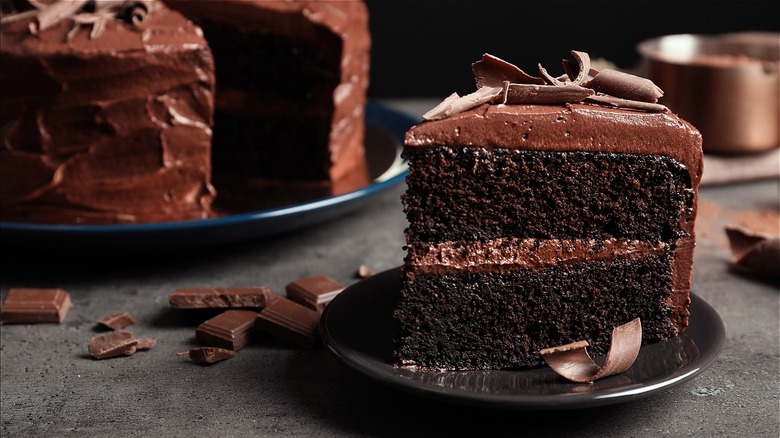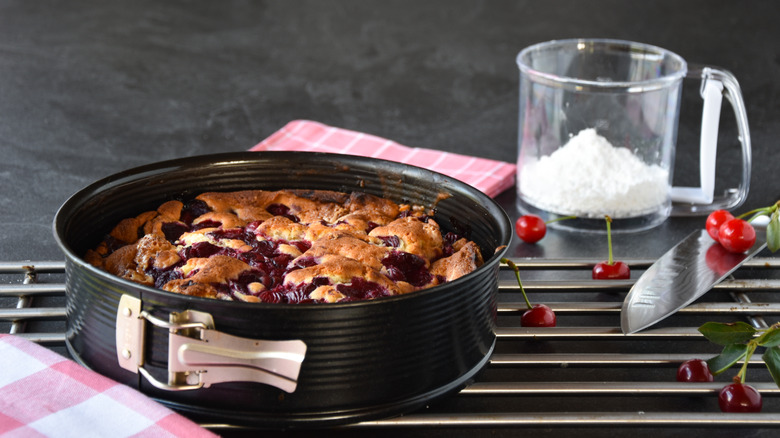Why You Should Always Be Making Cakes In Anodized Pans
Taking a cake out of the oven and flipping it out of its pan is one of the most dramatic moments of truth for the home baker. A myriad of issues can happen before you even take a bite — sticking to the walls of the pan, or coming out in a hot heap due to not cooling properly. To make your next cake baking venture a bit more successful, consider trying out an anodized pan.
Anodization is an aluminum coating process that seals the pan with a layer of oxide that is ultra-durable, per Anodizing.org. The result is a lightweight, hard, and easy-to-clean piece of cookware that has non-stick capabilities, without the less-than-desirable chemicals found in teflon pans. And it's not just the ease of cleaning these pans that make it a great choice for your cakes — though, did we mention they are dishwasher safe? That's just one of the reasons anodized pans are the perfect choice for your next cake baking project.
Everything we love about anodized pans
If you've ever taken a bite of a lemon cake and noticed a bit of metallic tang, that's likely because the cake was baked in an unsealed aluminum cake pan, which reacts with acid. Because anodized pans are sealed with an oxide layer, the aluminum can't react with acidic foods, according to Dr. Andrew Weil. It's another great reason to opt for anodized when you make any acidic batter, like sour cream or citrus-based cakes. Additionally, Fat Daddio's, a cake pan manufacturer and seller, notes that aluminum doesn't retain heat and is quick to cool. That translates to cakes that won't continue baking after you've removed the confection from the oven, but can still set properly.
Thanks to its nonstick, non-leeching, heating and cooling capabilities, and that you can just toss it into the dishwasher when you're done baking, an anodized cake pan makes itself a must-have for amateur and professional bakers alike.

